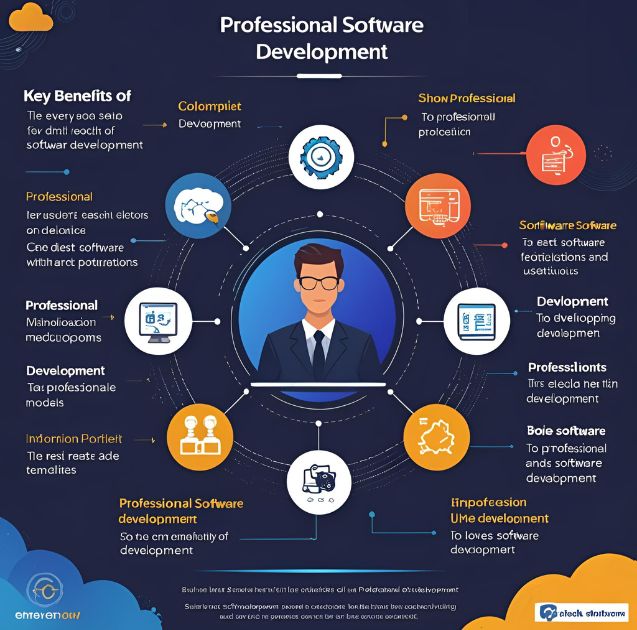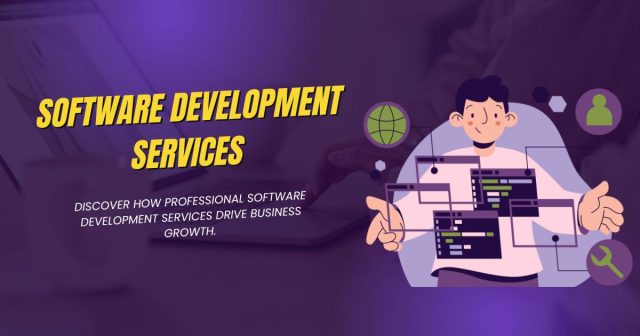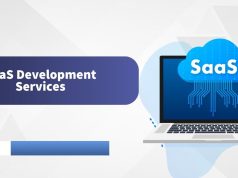Software development services have become the backbone of modern business operations. Companies across industries rely on custom software solutions to streamline processes, enhance customer experiences, and maintain competitive advantages. Whether you need a simple mobile app or a complex enterprise system, professional development services can transform your business vision into reality.
The demand for software development continues to surge as businesses recognize the critical role technology plays in their success. From startups launching their first product to established enterprises modernizing legacy systems, organizations are investing heavily in custom software solutions. Understanding the scope and benefits of these services can help you make informed decisions about your technology investments.
This comprehensive guide explores the various types of software development services available, their key benefits, and how to choose the right partner for your project. You’ll also discover best practices for managing development projects and avoiding common pitfalls that can derail your efforts.
Types of Software Development Services

Web Development
Web development forms the foundation of most digital business strategies. Professional web development services encompass both front-end and back-end development, creating responsive websites and web applications that engage users across all devices. Modern web development focuses on user experience, performance optimization, and scalability to support business growth.
Front-end development involves creating the visual elements users interact with, while back-end development handles server-side functionality, databases, and application logic. Full-stack developers can manage both aspects, providing comprehensive solutions for businesses seeking integrated web development services.
Mobile App Development
Mobile applications have become essential for businesses wanting to reach customers on their preferred devices. Professional mobile app development services include native iOS and Android development, cross-platform solutions, and progressive web apps. Each approach offers distinct advantages depending on your target audience and business requirements.
Native development provides the best performance and user experience, but requires separate codebases for different platforms. Cross-platform frameworks like React Native and Flutter allow developers to create apps for multiple platforms using a single codebase, reducing development time and costs while maintaining quality.
Enterprise Software Development
Large organizations often require custom enterprise software solutions to manage complex business processes. These services include customer relationship management (CRM) systems, enterprise resource planning (ERP) solutions, and workflow automation tools. Enterprise software development focuses on scalability, security, and integration with existing systems.
Custom enterprise solutions can significantly improve operational efficiency by automating repetitive tasks, centralizing data management, and providing real-time insights for decision-making. Professional development teams understand the unique challenges enterprises face and can create tailored solutions that grow with your organization.
Cloud-Based Solutions
Cloud computing has revolutionized how businesses deploy and maintain software applications. Cloud-based development services help organizations migrate existing applications to the cloud or build new cloud-native solutions from the ground up. These services often include architecture design, implementation, and ongoing maintenance.
Cloud solutions offer numerous benefits, including improved scalability, reduced infrastructure costs, and enhanced accessibility for remote teams. Professional cloud development services ensure your applications are properly configured for optimal performance and security in cloud environments.
Key Benefits of Professional Software Development Services

Expertise and Experience
Professional development teams bring years of experience and specialized knowledge to your projects. They stay current with the latest technologies, best practices, and industry trends, ensuring your software solutions leverage cutting-edge tools and methodologies. This expertise can help you avoid common mistakes and implement solutions that truly meet your business needs.
Experienced developers understand the importance of clean, maintainable code and proper documentation. They follow established development processes that include thorough testing, version control, and quality assurance measures to deliver reliable software products.
Cost-Effective Solutions
While hiring professional development services requires an initial investment, it often proves more cost-effective than building an in-house development team. You avoid the expenses associated with recruiting, training, and maintaining full-time developers while gaining access to a broader range of skills and expertise.
Professional services also help prevent costly mistakes that can occur when inexperienced developers attempt complex projects. They can identify potential issues early in the development process and implement solutions that prevent expensive problems down the road.
Faster Time to Market
Experienced development teams can accelerate your project timeline through efficient planning, proven methodologies, and streamlined development processes. They understand how to prioritize features, manage resources effectively, and deliver working software incrementally to provide value as quickly as possible.
Professional teams often have established workflows and tools that enable them to work more efficiently than ad-hoc development efforts. This efficiency translates to faster delivery times and earlier return on your software investment.
Ongoing Support and Maintenance
Software development doesn’t end when your application launches. Professional development services typically include ongoing support, maintenance, and updates to keep your software running smoothly and securely. This ongoing relationship ensures your software continues to meet your evolving business needs.
Regular maintenance includes bug fixes, security updates, performance optimizations, and feature enhancements. Having a dedicated support team familiar with your software architecture can resolve issues quickly and minimize downtime that could impact your business operations.
Choosing the Right Development Partner
Evaluate Technical Expertise
When selecting a development partner, thoroughly assess their technical capabilities and experience with relevant technologies. Review their portfolio to understand the types of projects they’ve completed and the industries they serve. Look for experience with projects similar to yours in scope and complexity.
Ask about their development methodologies, quality assurance processes, and project management approaches. A professional team should be able to explain its development process clearly and demonstrate how it ensures project success.
Consider Communication and Collaboration
Effective communication is crucial for successful software development projects. Evaluate potential partners based on their communication skills, responsiveness, and willingness to collaborate closely with your team. They should be able to explain technical concepts in terms you understand and provide regular updates on project progress.
Look for teams that use modern project management tools and provide transparent reporting on project status, timelines, and any challenges that arise. Regular communication helps ensure your project stays on track and meets your expectations.
Review Client References and Testimonials
Speaking with previous clients can provide valuable insights into a development partner’s capabilities and working style. Ask about project outcomes, adherence to timelines and budgets, and the overall client experience. Pay attention to how the development team handled challenges and whether clients would work with them again.
Online reviews and case studies can also provide helpful information, but direct conversations with references often reveal more nuanced details about the partnership experience.
Best Practices for Development Projects
Define Clear Requirements
Successful software development projects start with clear, detailed requirements. Work with your development partner to document functional requirements, user stories, and acceptance criteria. This documentation serves as a roadmap for the development process and helps prevent scope creep and misunderstandings.
Involve key stakeholders in the requirements gathering process to ensure all perspectives are considered. Regular review and refinement of requirements throughout the project helps accommodate changing needs while maintaining project focus.
Plan for Scalability
Design your software solutions with future growth in mind. Professional development services should consider factors like user growth, data volume increases, and feature expansion when architecting your applications. Building scalable solutions from the start prevents costly rewrites as your business grows.
Discuss scalability requirements with your development partner early in the project planning phase. They can recommend appropriate technologies and architectural patterns that support your long-term business objectives.
Implement Proper Testing Strategies
Comprehensive testing is essential for delivering reliable software products. Professional development services should include various testing approaches, including unit testing, integration testing, and user acceptance testing. Automated testing helps catch issues early and ensures consistent quality throughout the development process.
Plan for testing time in your project timeline and budget. Rushing through testing phases often leads to bugs and issues that are more expensive to fix after deployment.
Taking the Next Step
Software development services offer tremendous opportunities for businesses to innovate, improve efficiency, and create competitive advantages. The key to success lies in choosing the right development partner and following proven best practices throughout your project.
Start by clearly defining your business objectives and software requirements. Research potential development partners thoroughly, focusing on their expertise, communication skills, and track record of successful projects. Remember that the lowest-cost option isn’t always the best value when it comes to software development.
Consider starting with a smaller project or proof of concept to evaluate a development partner’s capabilities before committing to larger initiatives. This approach allows you to assess their working style and deliverables while minimizing risk.
Professional software development services can transform your business operations and open new opportunities for growth. By investing in quality development partnerships and following established best practices, you can create software solutions that drive real business value and support your long-term success.







